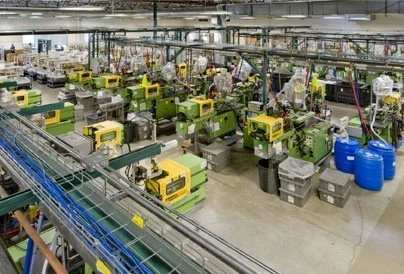Life Safety & Security Systems: Balancing Proactive Security with Privacy

The potential of building automation systems (BAS) to enhance security is undeniable. Networks of sensors, intelligent analytics, and integration with access control and surveillance systems create new possibilities for real-time threat detection, proactive responses, and streamlined emergency procedures. However, these capabilities also bring privacy concerns to the forefront, highlighting the essential need to carefully balance the desire for a more secure environment with the fundamental right to privacy for building occupants.
Visit Our Building Automation Study Course
The Benefits of BAS for Building Security
Let's first examine how BAS can revolutionize building security practices. Traditionally, security has been largely reactive, focusing on responding to alarms or incidents after they occur. BAS enable a shift toward proactive security. By analyzing sensor data for unusual access attempts, occupancy patterns that deviate from the norm, or environmental changes that could signal a developing issue, BAS can alert security personnel to potential threats early on. This allows for quicker intervention or investigation, potentially mitigating the impact of an incident.
Integration with other building systems is crucial. When a BAS is linked to access control and video surveillance, it provides greater situational awareness. Unusual card swipes or unexpected motion detected on a camera gain more context when linked with other BAS data points. Furthermore, in true emergencies, BAS can play a vital role in automated lockdowns, controlled evacuations, and mass communication to occupants. These capabilities can save lives and minimize damage.
Finally, the wealth of security-relevant data gathered by BAS holds another benefit. Over time, analysis can reveal recurring patterns, pinpoint potential vulnerabilities within the building's security systems, or suggest areas where physical security measures need improvement. This empowers data-driven decision-making to continuously enhance overall safety.
Privacy: The Essential Counterpoint
While the security benefits are clear, the potential for increased surveillance associated with these BAS capabilities raises essential privacy questions. The ability to track movements, monitor access patterns in detail, and even analyze environmental data could lead to the creation of detailed occupant behavioral profiles without their full knowledge or explicit consent. These concerns are amplified by the possible "function creep" of a system implemented for security, where data is later repurposed for less transparent means of monitoring or control.
Furthermore, the sensitive nature of security-related data demands careful consideration. How long should this data be stored? Who has access to it, and how is it protected against misuse or potential breaches? Like any networked component of a BAS, these systems introduce potential cybersecurity risks that could be exploited for unauthorized surveillance or disruption of security protocols themselves.
Striking a Balance: Privacy-Conscious Security
Achieving the promise of BAS-enhanced security without eroding trust or violating privacy requires a multi-faceted approach. Technology must be designed with privacy in mind from the outset. This means considering ways to minimize the collection of personally identifiable information where it's not strictly necessary for the security function. Robust encryption, secure data storage, and strict access controls become paramount. Regular cybersecurity audits and vulnerability testing help ensure the systems remain protected against malicious actors.
Just as important as the technical safeguards are clearly articulated privacy policies. Transparency with building occupants about the purpose of data collection, retention periods, and access rules is vital. Where appropriate, mechanisms for opt-outs or customizable privacy settings can empower individuals to have some control over their data.
Ultimately, ethical considerations must guide BAS security implementation. The need for security should not become a blank check for untargeted surveillance. Data uses should remain limited to their stated purpose, informed consent should be sought to the greatest extent possible, and continuous oversight can ensure compliance with policies and respect for individuals' rights.
Building automation holds immense potential for transforming building security. However, responsible integration demands we address the inherent tension between enhanced security and privacy. By prioritizing transparent policies, privacy-conscious technology design, and strong ethical frameworks, it's possible to harness the power of BAS for a safer built environment while simultaneously safeguarding the fundamental rights of those within it.








